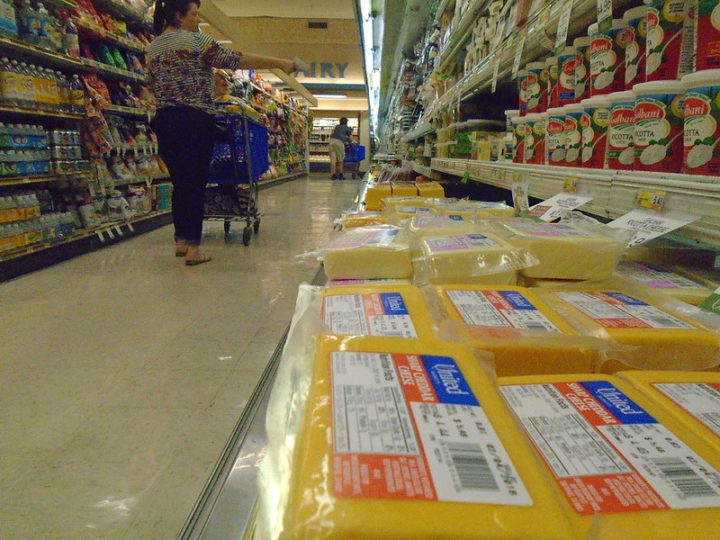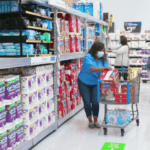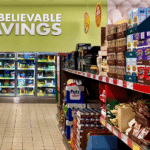
And you thought it was bad last year when you couldn’t find toilet paper.
There are still scattered shortages that might leave you unable to complete your grocery shopping list in any given week. But the bigger, longer-lasting problem is that prices are on the rise, coupons and promotions are not keeping up, and cash-strapped shoppers are worried it will only get worse.
So a grocery industry group is appealing to the federal government to help its members keep their costs down, so they don’t have to pass them along to consumers in the form of higher prices.
The Consumer Brands Association has released a letter it has sent to the White House’s top economic adviser Brian Deese, Director of the National Economic Council.
“The consumer packaged goods industry — the companies that make the products Americans use every day — is experiencing the perfect storm: costs associated with ingredients, materials, transportation and labor are skyrocketing at a time when consumer demand is surging to levels not seen since March 2020,” the letter reads. “Rapidly rising costs are the worst-case outcome for supply chains already made vulnerable by the COVID-19 crisis.”
The group is asking government leaders to take several actions to help reduce bottlenecks in the supply chain, and to help the industry address staff shortages along every step of the chain, from warehouse workers to truck drivers to shelf stockers.
But even those measures won’t solve all of the industry’s challenges. So far this year, demand for grocery products is still higher than it was at any time last year, with the sole exception of last March, which saw a surge in pandemic panic-buying. “We couldn’t have predicted that a full year into the pandemic we’d still be seeing demand at these levels,” Consumer Brands President and CEO Geoff Freeman said in a statement.
And all that demand has contributed to what Consumer Brands calls “a supply chain at its breaking point.” With costs for manufacturing and transporting products on the rise, “the industry has absorbed as much cost as it could manage,” Freeman said – and now many brands are having to raise their prices in order to keep up.
Major manufacturers like Procter & Gamble, Kimberly-Clark, General Mills and Hormel are among those who have said they’re going to have to raise prices to offset their own higher costs. And Arm & Hammer owner Church & Dwight said last month that it had resorted to “reduced couponing and promotional spending,” effectively raising prices for couponers who’ve become accustomed to buying the company’s products at a discount.
So Consumer Brands hopes the government can help address at least some of the challenges the industry faces, before supply chain disruptions, commodity costs – and prices at the grocery store – get even worse.
“America is emerging from life dictated by COVID-19,” Freeman’s letter to Deese read. “But now our country faces a new challenge.” Even with a vaccine, the easing of mask mandates and a slow return to something resembling pre-pandemic life, it seems that getting back to normal at the grocery store – where you’ll be able to find everything you need, at a reasonable price, and maybe even take advantage of a coupon or a sale – is going to take just a little while longer.















